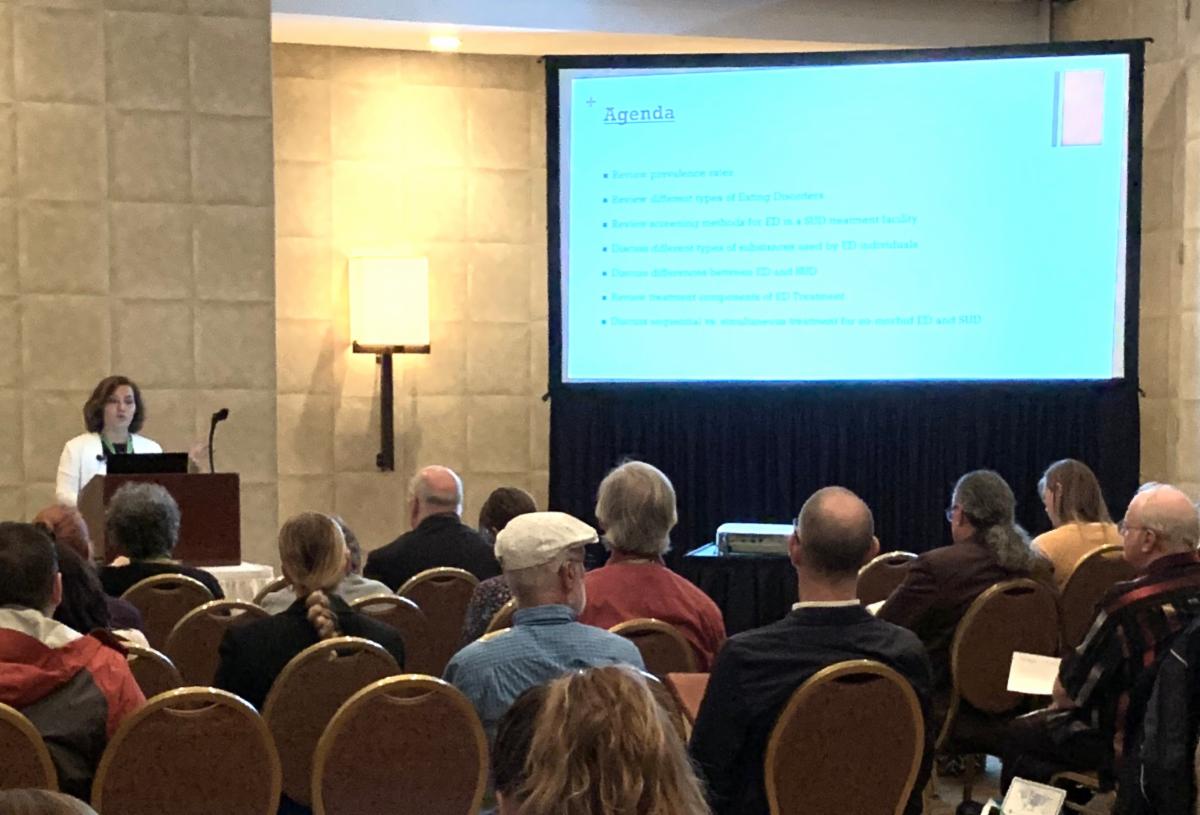Fall 2019
|
The Tangled Web of
Eating Disorders and
Substance Use Disorder
Dr. Ebrahimi presented at the Cape Cod Symposium on Addictive Disorders (CCSAD)
|
The co-occurrence of eating disorders (EDs) and substance use disorder (SUDs) is high. 50 percent of individuals with an eating disorder will abuse alcohol or an illicit substance compared with 9 percent of those in the general population. 35 percent of alcohol or illicit substance abusers have an eating disorder while the prevalence in the general population for eating disorders is 3 percent.
Individuals who have an eating disorder and abuse drugs and alcohol experience higher levels of eating disorder symptoms, poorer outcomes, higher relapse rates, increased medical complications, increased psychopathology,
Given these statistics, the importance of screening for both disorders, when someone presents for treatment with either one, cannot be overstated. Unfortunately, treatment centers need to up their game in this area. A National Treatment Center Study found that of 351 publicly funded SUD programs only 16 percent offered treatment for co-occurring eating disorders and only half screened for eating disorders in their patient assessment. Only 3 percent of SUD treatment centers in this study had a formal arrangement with an ED treatment center or provider.
How can substance abuse disorder treatment clinicians and admission staff do a better job of screening for eating disorders in their potential patients? First, they should learn more about the signs and symptoms of eating disorders and their effects on individuals with substance abuse disorder. This will help them better screen for eating disorders in clients.
Fortunately, there are several tools available to help screen clients for an eating disorder. One such tool is the SCOFF Questionnaire, which is a basic five-question assessment tool that is in the toolbox of most eating disorder clinicians. Answering "yes" to two or more of the questions warrants further questioning and more in-depth assessment. SCOFF corresponds with first letter of the following five words in the questions: Do you make yourself sickbecause you feel uncomfortably full? Do you worry you have lost control over what you eat? Have you recently lost more than one stone (14 lbs.) over a three-month period? Do you believe yourself to be fat when others say you are thin? Would you say food dominates your life?
Just a few basic questions can make the difference between setting someone up for failure or success. Those in the treatment of either eating disorders or substance abuse disorders should consider cross training on these highly correlative disorders to insure that each client is receiving the right treatment at the right time.
For more information about the Cambridge Center for Eating Disorders visit the links below.
http://www.eatingdisordercenter.org/
info@cedcmail.com617-547-2255 |



No comments:
Post a Comment